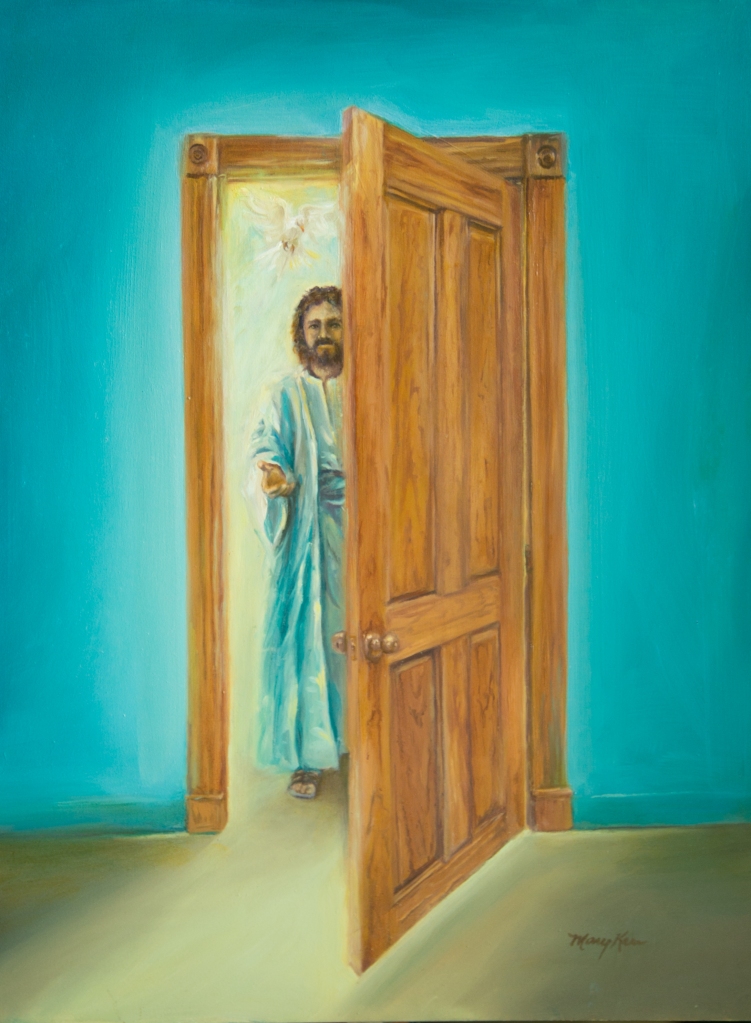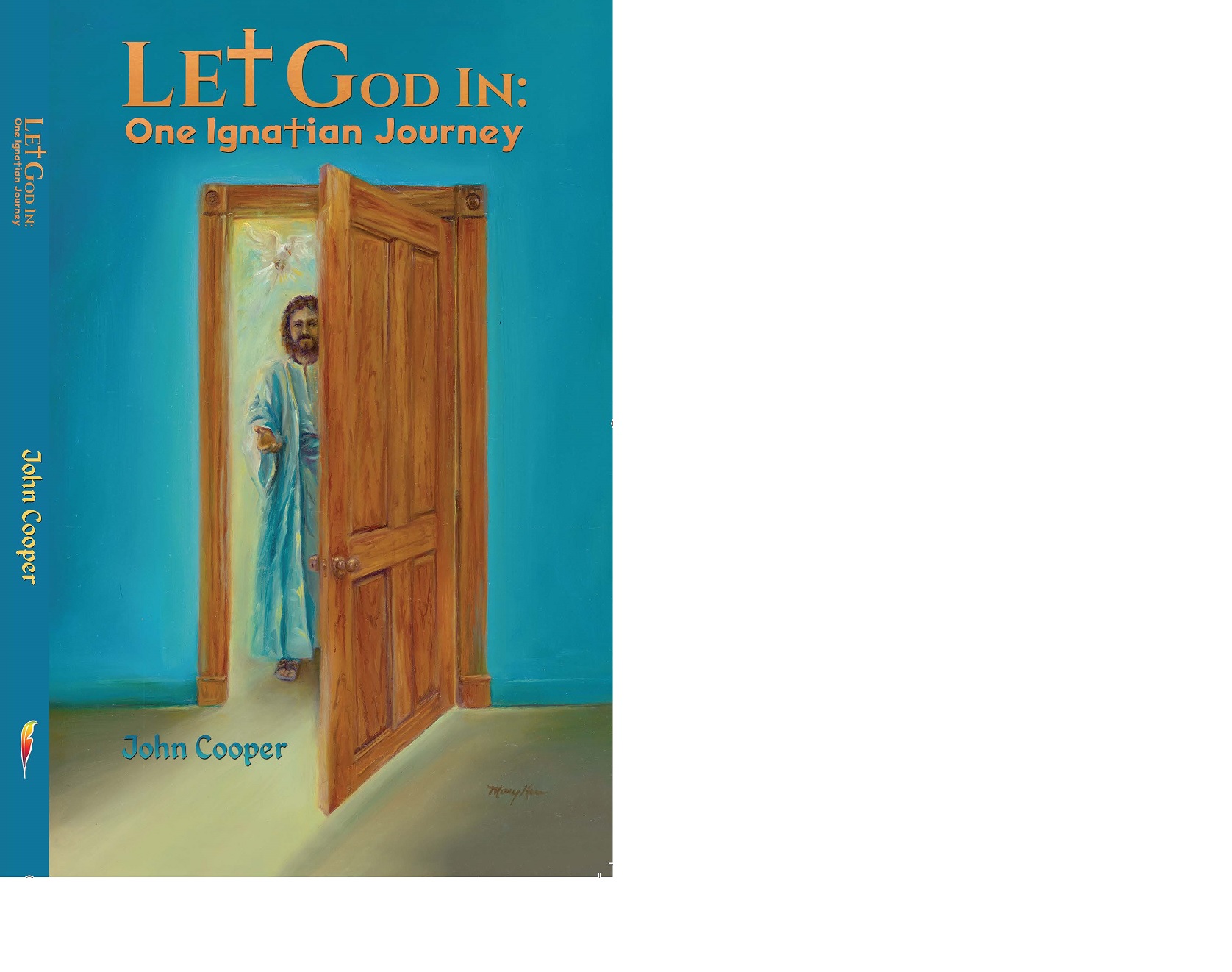From Formation to Action
I came to Ignatian Spirituality via the 19th Annotation of the Spiritual Exercises of St. Ignatius. The 19th Annotation and my Jesuit based studies for a Certificate in Spiritual Direction at Spring Hill College have formed who I am. I came as I was, with prior life formation already in place. Although new formation has occurred, I also bring to the equation and to the Catholic Church to which I returned who I was and who I am. One of the prior formation events that I brought to the table was my prior formation in nonviolence. I became a conscientious objector to war at about 20 years old and left the Catholic Church to join an historic Peace Church. I did not know at that time that Vatican II allowed for such matters of conscience. In my studies of Ignatian Spirituality I have found links to nonviolence and social action. See note 98:
(098)
Eternal Lord of All Things
Eternal Lord of all things, in the presence of Thy infinite goodness, and of Thy glorious mother, and of all the saints of Thy heavenly court, this is the offering of myself which I make with Thy favor and help. I protest that it is my earnest desire and my deliberate choice, provided only it is for Thy greater service and praise, to imitate Thee in bearing all wrongs and all abuse and all poverty, both actual and spiritual, should Thy most holy majesty deign to choose and admit me to such a state and way of life[1]
The bearing of all wrongs, all abuse, and all poverty is the heart of a nonviolent lifestyle. Seeking to align our personal desires and discerning our choices only for God’s service and praise is the heart of Ignatian discernment.
Although some might attempt to change who they are to fit the constituency of a particular organization, Church, government, or group in order not to offend that group, or to be popular, the giving of the self (kenosis) to live only in the love and grace of God requires one consider what is the most loving thing to do and what will bring greater glory to God regarding one’s own birth, formation, life, burial, and resurrection. To be popular, approved of, to value in essence riches, honor, and pride is diametrically opposed to the discernment which leaves one absolutely free to choose and do only what God wants and do what brings God greater glory.
The third degree of humility of which Ignatius speaks allows for one’s recognition of particular gifts, although not for one’s own conceit, pride, and vanity, but for service and praise to the Lord our God. See note 167:
(167) The Third Kind of Humility
This is the most perfect kind of humility. It consists in this. If we suppose the first and second kind attained, then whenever the praise and glory of the Divine Majesty would be equally served, in order to imitate and be in reality more like Christ our Lord, I desire and choose poverty with Christ poor, rather than riches; insults with Christ loaded with them, rather than honors; I desire to be accounted as worthless and a fool for Christ, rather than to be esteemed as wise and prudent in this world. So Christ was treated before me.[2]
Fr, Joseph Tetlow has this to say about the Third Degree of Humility:
The lover in this case is made greater by love. The Beloved chose to empty himself, taking on the ways and characteristics of a servant. He did not mind being told that he was seriously mistaken about God and the people. He did not mind being considered mad. And his way led to great suffering and death. The person who wishes to be meek and humble as Jesus was can say to the Father honestly, “Treat me as you treated your own Son.” Such a prayer has nothing to do with negative self-image or despising the gifts of the Spirit. On the contrary, heroic love is meek and humble, but it is also glorifying. Just look at what happened in the end to Jesus of Nazareth.[3]
It is possible one might be considered a little crazy, a little radical, and that one may be viewed simply as mistaken, but sometimes one’s particular gifts may not perfectly fit the spiritual needs of others. In this case, it is better to let the Creator deal directly with the creature. In the end, all will be well.
In my case, I am not led to accept everything as is in the Catholic Church. I am somewhat of an activist who desires change in some areas of the Church, like Women being Deacons, like Communion shared especially with non-Catholic mates of members, like something being done about the sex abuse scandal, like perhaps a married Priesthood, like a commitment to non-violence in Catholic cultures all around the world. No more war. No more Catholics killing and bombing fellow Catholics because Catholics will be encouraged not to kill at all. I am feeling the most loving thing to do, and what will bring greater glory to God, is to not accept everything as is in the Church and try to “fit in,” but to promote Ignatian Spirit led change and improvement in the Church. I have been able already to effect some minor changes. I don’t think I am being prideful; I think I am being realistic that this may make me looked down upon by some. Good. I have made some mistakes already on this path, and I am sure to make more, but I am willing to submit to correction and supervision and to realize that the time may not be right yet for such changes.
I am writing this essay as part of my discernment process concerning what to do with my CSD (Certificate in Spiritual Direction) degree. I am led back to one of my Consolations without prior cause, which was to write a book which is now titled Let God In: One Ignatian Journey, and is soon to be published. For Consolation without prior cause, see note 330:
(330)
God alone can give consolation to the soul without any previous cause. It belongs solely to the Creator to come into a soul, to leave it, to act upon it, to draw it wholly to the love of His Divine Majesty. I said without previous cause, that is, without any preceding perception or knowledge of any subject by which a soul might be led to such a consolation through its own acts of intellect and will.[4]
My consolation without prior cause was to write this book and to promote Ignatian Spirituality. I think I need to stick with that consolation for now, and to wait to see what happens and where these matters lead. If other consolations arise, and are like water dripping on a sponge, I remain open to considering them. If they splash like on a rock, then no. Getting too many things going, too many balls bouncing at once, could be thoughts of my own after the consolation without prior cause and such thoughts need to be carefully discerned.
Pray for me,
John Cooper
Tuscaloosa, AL
[1] The Spiritual Exercises of St. Ignatius of Loyola, Louis J. Puhl, SJ translation
[2] Spex, 167
[3] https://www.ignatianspirituality.com/ignatian-prayer/the-spiritual-exercises/the-third-degree-of-humility/
[4] SpEx, 330





